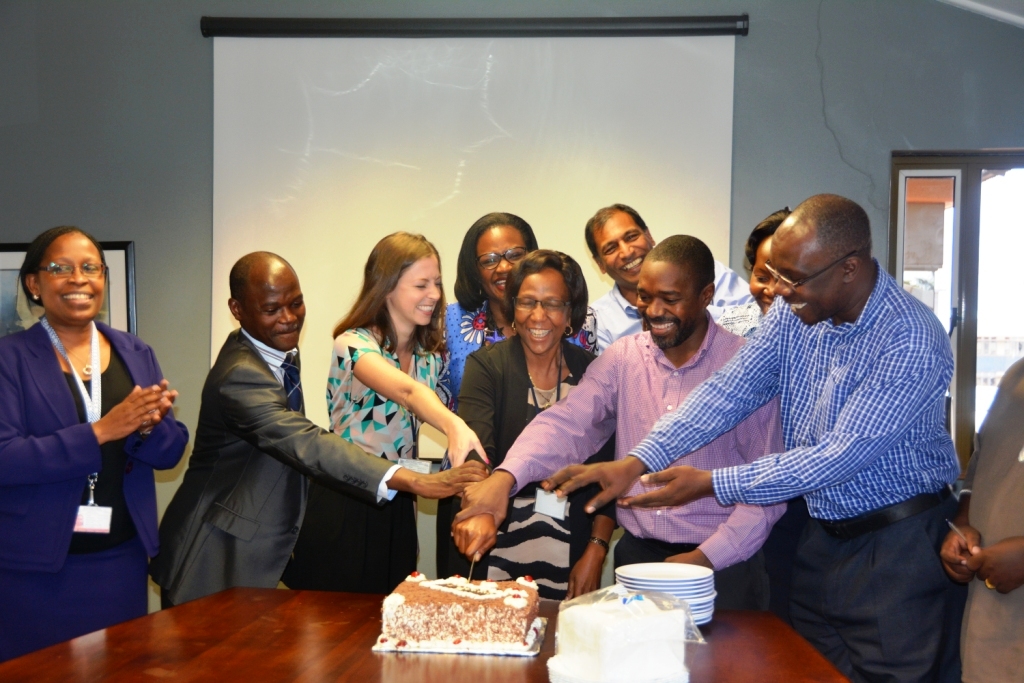One of my main reasons for applying for a Global Health Corps fellowship in Uganda was to be closer to the work I was supporting. Before GHC, I worked at the US headquarters of a global health nonprofit organization. I loved it there: interacting with donors, writing about projects I believed in, and learning about global health equity every day. One of the most inspirational parts of my job was the opportunity I had to interact with field-based staff. I relished every chance I got to collaborate with them on proposal development, data collection for donor reports, and donor site visits. Yet these interactions were almost always remote, through email or over a staticky and unreliable phone connection. I wanted to work with them, and learn from them, more directly – in person and on a daily basis. I wanted to witness the work they did first-hand.
Since being in Uganda, I have been consistently impressed by the competence, knowledge, professionalism, and commitment of my colleagues. Like most nonprofits, Baylor-Uganda is stretched thin in terms of staffing, and everyone is required to do work outside of their job descriptions. Based on the amount of work they handle and the daily challenges they face, I have basically come to believe that the Baylor-Uganda staff are superhumans. When they aren’t seeing patients, doctors are writing grants; when they aren’t analyzing program outcomes, M&E managers are gathering impact data to share with donors. Most people here are responsible for the work of at least three full-time positions. And although stress can be high at times, people rarely complain; they just do their work with positive attitudes and unmatched dedication. And from the Quality Improvement Officers obsessing over improving program efficiency to the Play Therapy Specialists bouncing basketballs with tiny HIV-positive toddlers, it is obvious that they love what they do. Their passion for their work is palpable and inspiring—if everyone loved their jobs as much as Baylor-Uganda staff seem to, the world would be a happier and more meaningful place.
This may sound overly optimistic and, of course, Baylor-Uganda has its problems like any other organization. Perhaps I am being excessively sentimental as my time in Uganda comes to an end. But overall, I can honestly say that it has been an honor to work with such impressive people. Their dedication has been, for me, the top motivating factor to do my work. They are capable of doing great things—and the least I can do is try to raise funding and support so that they can.

